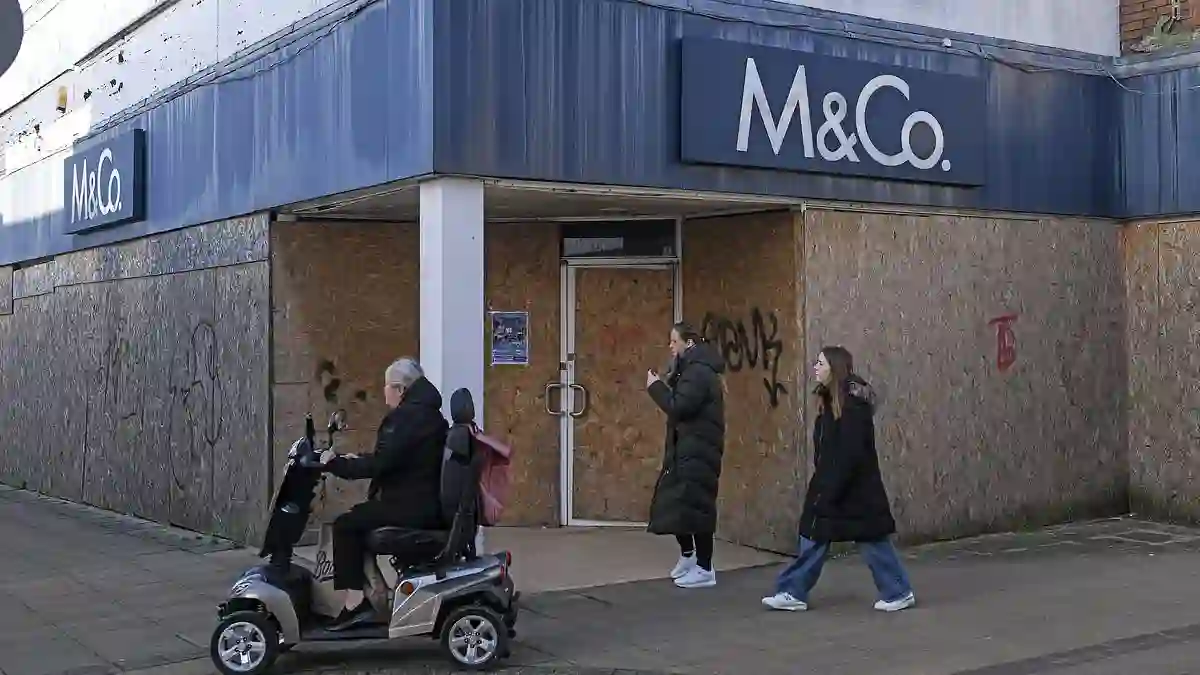Just as Waterlooville, a small town in Hampshire, was trying to claw back its reputation and breathe life back into its fading high street, it’s now found itself caught in the middle of a political firestorm.
At the centre of it all? A controversial plan to house dozens of asylum seekers in a building that once hosted the local Peacocks store.
A ‘Zombie Apocalypse Town’ Now at the Centre of a Debate
Over the past two years, Waterlooville’s high street has become infamous online—viral clips have shown it nearly deserted, sparking headlines that dubbed it the “worst high street in Britain.”
With boarded-up shops and empty storefronts, locals have fought to change the narrative.
The town’s council has been trying to turn things around with regeneration funding and community investment.
But now, just as things were starting to shift, a new proposal from the Home Office threatens to divide the community.
Suella Braverman Leads Local Opposition
Former Home Secretary and current MP for Fareham and Waterlooville, Suella Braverman, isn’t mincing her words.
She’s fiercely opposing the plan, which would see 35 young male asylum seekers housed in the old Peacocks building right on the high street.
Braverman called the move “outrageous,” “reckless,” and “an insult to local people.”
In a passionate on-the-ground video campaign, she said the town’s services are already overstretched and accused the government of treating Waterlooville like a dumping ground.
“Families here deserve better,” she argued. “Labour has lost control of our borders, and this is the result.”
She’s now urging residents to sign a petition to block the plan and has written directly to Home Secretary Yvette Cooper.
Confusion and Miscommunication Between Officials
But things aren’t quite so black and white. Havant Borough Council, which oversees Waterlooville, says they never had the chance to properly respond to the Home Office proposal in the first place.
Why? According to them, the consultation email was sent to the wrong person—a contractor who doesn’t even work with the council anymore.
In a strongly worded statement, the council said this kind of communication breakdown is unacceptable, especially for decisions that carry such local weight.
They’ve since asked for the consultation to be extended so they can formally respond.
Labour Council Leader Pushes Back Against Braverman’s Claims
Councillor Phil Munday, Labour leader of Havant Borough Council, has hit back at Braverman’s comments, warning that her public campaign could stir up unnecessary fear and tension in the community.
While acknowledging the council does have a duty to house asylum seekers, he stressed the importance of dealing with such matters respectfully and collaboratively.
He confirmed that he’s personally contacted the Home Office to request more time and is working with council officers to ensure a proper response is sent.
Cllr Munday also reminded residents that the individuals being considered for housing are recognised asylum seekers, not illegal immigrants.
“The headline-grabbing language doesn’t reflect the legal status or the reality,” he said, adding that inflammatory language could hurt both the community and the vulnerable people involved.
Political Tensions Continue as the Council Balances Multiple Views
What complicates matters further is that Havant Borough Council currently has no overall political control.
It’s run by a coalition of Labour, Liberal Democrats, and Green Party councillors, which means opinions on the migrant housing issue vary widely across the political spectrum.
As the row continues to unfold, the focus now shifts to how the Home Office will respond to the council’s call for a consultation extension—and whether Braverman’s petition gains traction with residents already frustrated by the town’s slow recovery.
What Happens Next in Waterlooville?
Will the proposal go ahead? Will the community find a middle ground?
And can Waterlooville balance compassion for asylum seekers with the need to rebuild a struggling town?
The situation remains tense—and deeply complex.
